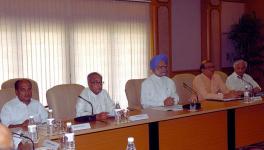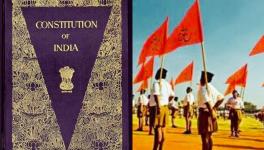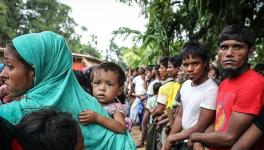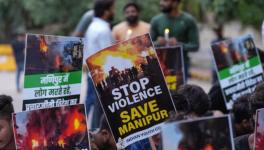Manipur Muslims want State Intact, Demand Accountability for Devastation
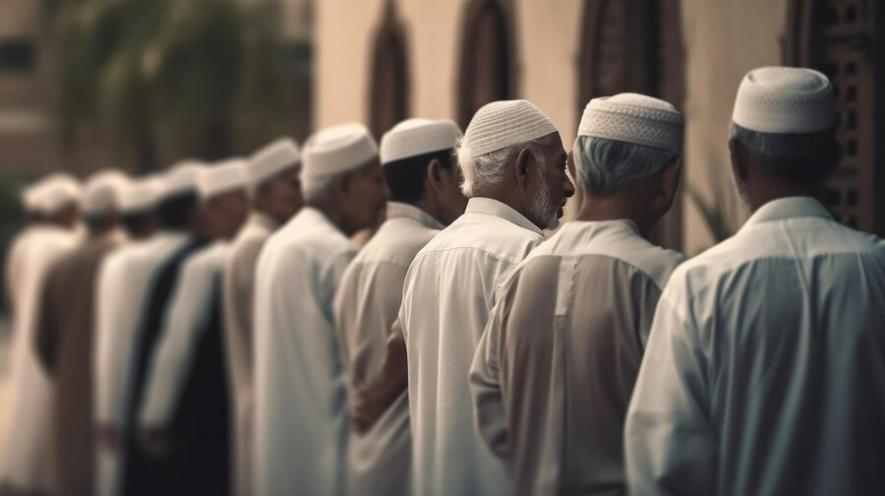
Image for representational use only. Image Courtesy: Freepik
Kolkata: Muslims of strife-torn Manipur want its integrity preserved and protected at all costs. Representations made by Muslim organisations to the Narendra Modi and N Biren Singh governments have emphasised restoring normalcy at the earliest.
At the same time, Manipur’s Muslims, locally known as Meitei-Pangal, have demanded accountability for the devastation caused by the prolonged ethnic conflict.
Leaders of the community, which too has been the “victim of the unusual, abnormal circumstances and helpless spectators”,
told this reporter that they “have used every channel of communication available to them” to convey to the warring Meiteis and Kukis to cease hostilities and return to normalcy at the earliest.
Two months after the ethnic violence consumed Manipur, Muslim civil society organisations under the banner of the United Meitei-Pangal Committee (UMPC) Manipur announced a threefold objective on July 1: bringing back peace, preserving and protecting Manipur’s integrity and eradicating anti-social elements.
The Committee has been meeting regularly to take stock of the situation and chalk out action plans. In its latest assessment, the UMPC found that violence has somewhat decreased, according to spokesperson Md Raees Ahamed.
Calling themselves “responsible and accountable citizens”, Ahamed said that Muslims belong to the indigenous community in Manipur for more than 400 years.
“The population, according to the 2011 Census, was close to 2.4 lakh—around 8.5% of Manipur’s population. Thoubal district has the maximum number of Muslims with the community spread over Imphal East, Imphal West, Bishnupur, Kakching, Tengnoupal and Churachandpur,” he added.
The working-age segment is mostly engaged in farming, mainly paddy cultivation. There are land-owning farmers and some people work as sharecroppers and others have small businesses.
In a memorandum submitted to Modi, Union home minister Amit Shah and the state governments around two weeks ago, UMPC convener Moulana Muheiyuddin pointed out that communal politics, with ethnicity as the pivot, has been gaining ground in Manipur in the last 20-30 years and its adverse impact has manifested even in ‘economic management’. This poses a threat to the members of the minority community.
The COVID-19 pandemic, which lasted over two years since the first quarter of 2020, badly impacted large sections of the population. Before they could resume normal life, the ethnic conflict forced them to reconcile with extreme forms of violence, he said.
“Please, intervene effectively so that our Manipur is back to normal. Accountability for the mayhem must, however, be established,” the memorandum urged.
Jamiat Ulama-i-Hind sent a delegation under the leadership of its general secretary Maulana Hakeemuddin Qasmi to the state around two weeks ago. “The delegation found that Muslim-majority Kwakta village, in Bishnupur district, was badly impacted, forcing villagers to seek refuge in temporary camps. About 35 houses and a mosque in ward 8 of Kwakta bore the brunt of the attacks,” Jamiat’s Manipur unit president Maulana Saeed Ahmed said.
“A critically wounded 16-year-old student Arbaaz had to be shifted to AIIMS New Delhi. The delegation made arrangements to distribute relief material,” Ahmed added.
Ahmed also believes that the situation has improved in the past week, “but a peace that can inspire confidence in people is just not in sight”.
Asked about the Kuki demand for a separate administration, Ahmed said, “We have urged them to soften their stand, engage in dialogue and explore ways to preserve Manipur’s integrity. The appeal has been made verbally and by other means at our disposal.”
Does it mean Muslims are against the demand for a separate Kuki administration? “I told you we want Manipur to remain intact; there is no ambiguity,” he replied.
The local Jamiat unit is keeping the headquarters posted with regular reports sent to president Maulana Mahmood Asa’d Madani, he informed.
Despite the ethnic conflict, a Kuki and a Meitei academician shared the dais in Guwahati and made a fervent appeal for peace last week.
According to The New Indian Express, T Tombing (Kuki) teaches at the National Law University & Judicial Academy, Assam and Yengkhom Jilangamba (Meitei) is with the Tata Institute of Social Sciences, Guwahati campus.
Tombing contended that only peace could lead to reconciliation. “Peace must be the first step. Secondly, the concerns of victims from both sides must be addressed,” Tombing said.
Jilangamba said that “civil society groups, especially those in other parts of the region, can play a constructive role. They can send a message that the people in the neighbourhood are equally concerned about bringing peace to Manipur”. Media too can play an important role in restoring peace, he added.
The event was organised by Axom Nagatik Samaj to get eminent people from different walks of life to appeal for peace in Manipur. Scholar Hiren Gohain felt that people from both communities should come together and keep talking to each other by ignoring the environment of hostility.
The writer is a Kolkata-based freelance journalist.
Get the latest reports & analysis with people's perspective on Protests, movements & deep analytical videos, discussions of the current affairs in your Telegram app. Subscribe to NewsClick's Telegram channel & get Real-Time updates on stories, as they get published on our website.














